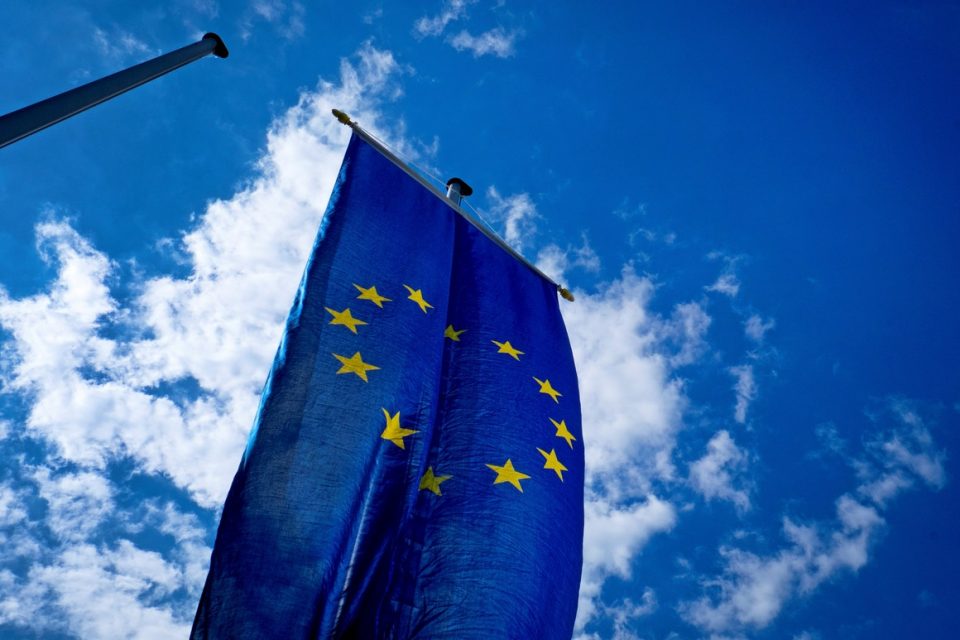BY DAYO ADESULU
European Union Ambassador for Kenya, Simon Mordue will on June 11, 2020 sign a €5 Million grant, in the presence of the Ministry of Labour and Social Protection, that will enable a consortium of NGOs to provide cash transfers to 80,000 vulnerable Kenyans who have lost their income sources due to COVID-19.
The aim of the project is to improve food security covering 50% of recipients’ food needs, and other essential costs such as soap, water, rent, and mobile phone credit.
The grant signing ceremony was small in keeping with the Ministry of Health social distancing regulations.
As a result of COVID-19, an estimated 30% of Kenyans living in Nairobi’s informal settlements are experiencing severe hunger.
The EU’s Partners Oxfam in Kenya, the Kenyan Red Cross Society, Concern Worldwide, ACTED, IMPACT, the Centre for Rights Education and Awareness, and the Wangu Kanja Foundation will help provide 20,000 households living in the Kibera, Korogocho, Mathare, Soweto, Majengo, Gitare, Marigo, Gatina Lunga Lunga, Kayole and Mukuru informal settlements of Nairobi with monthly cash transfers for three months, beginning in June.
The direct cash transfers via Mpesa, through mobile money transfer, will complement the Ministry of Labour’s Inua Jamii programme.
READ ALSO: DHL Strengthens Leadership Teams In 3 African Countries
47-year-old Priscilla Ngilla, a mother taking care of two children in Kibera has said: “It has helped me a lot, I even thank God for that. Because…this house, if you hadn’t sent me that money, I wouldn’t be here. I would have been chased away. But thanks to what you gave us I was able to divide it a little and pay for the house, and a debt I had nearby to pay for food.”
“The EU is standing with Kenya during this difficult time, providing a lifeline through cash transfers for the worst affected people in Nairobi’s urban informal settlements, including women, the elderly and persons with disabilities,” said European Union Ambassador for Kenya, Simon Mordue.
The EU is standing with Kenya during this difficult time, providing a lifeline through cash transfers for the worst affected people in Nairobi’s urban informal settlements
Mat Cousins, Oxfam in Kenya’s Humanitarian Director said: “By mobilizing resources quickly, the European Union has shown its commitment to working in partnership with the people of Kenya, government authorities, civil society and affected communities. This whole of society approach will save lives.”
The EU itself is contributing Ksh 35 billion to Kenya’s response to COVID-19 whilst EU Member States have already provided more than Ksh 3.3 billion (EUR 30 million) – that figure continues to increase. This collective support by Team Europe is a statement of Europe’s friendship and partnership with Kenya in these difficult global times.
The launch event will be held on Thursday 11 June from 9 am to 10:30 am the grounds of Kenya International Conference Centre (KICC), Nairobi.
READ ALSO Sudan Embraces Digital Payments To Build Inclusive Economy
- The consortium will provide monthly cash transfers for three months to 20,000 vulnerable households in the Kibera, Korogocho, Mathare, Soweto, Majengo, Gitare, Marigo, Gatina Lunga Lunga, Kayole and Mukuru informal settlements.
- 11,250 households enrolled in Inua Jamii, and receiving KES 2,000 per month, will receive a complimentary allocation of KES 5,668 per month to meet approximately 50% of the minimum expenditure basket (MEB) agreed by the Kenya Cash Working Group. 8,750 households who are not enrolled in any safety net programme will receive KES 7,668 per month or 50% of the MEB. All cash transfers will be made through mobile money transfer (MPESA).
- The consortium will also provide cash assistance to approximately 1,035 survivors of sexual and gender-based violence, identified by local partners, alongside SGBV prevention and response measures. Rises in SGBV are a worrying trend associated with the pandemic.
- Households will be selected through the Nyumba Kumi system, subject to independent verification by the Kenya Red Cross Society with additional checks carried out by the consortium partners. Transparent complaints and feedback mechanism has been set up, and rigorous monitoring of the use and the impact of the cash transfers on households and markets will be carried out regularly and shared with key stakeholders, including from the Government of Kenya, the European Union and other development partners.
- A pilot cash transfer to 6,016 people living in Kibera has recently been concluded providing grants worth an average of KES 5654.5 (€46.74) per household


